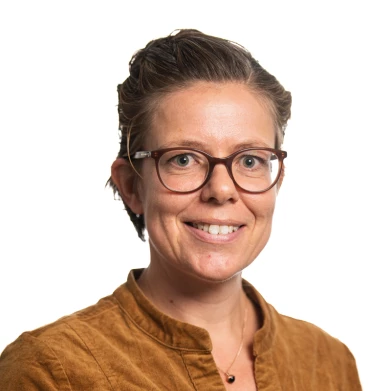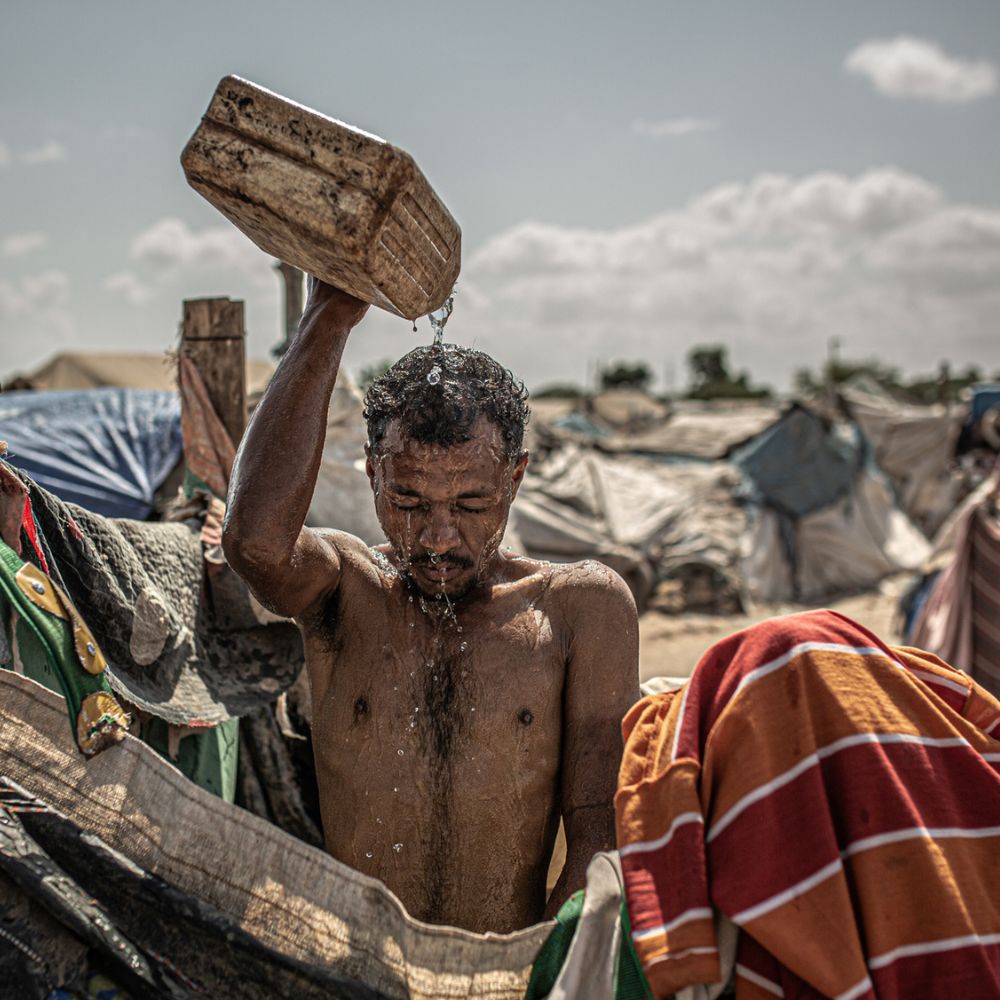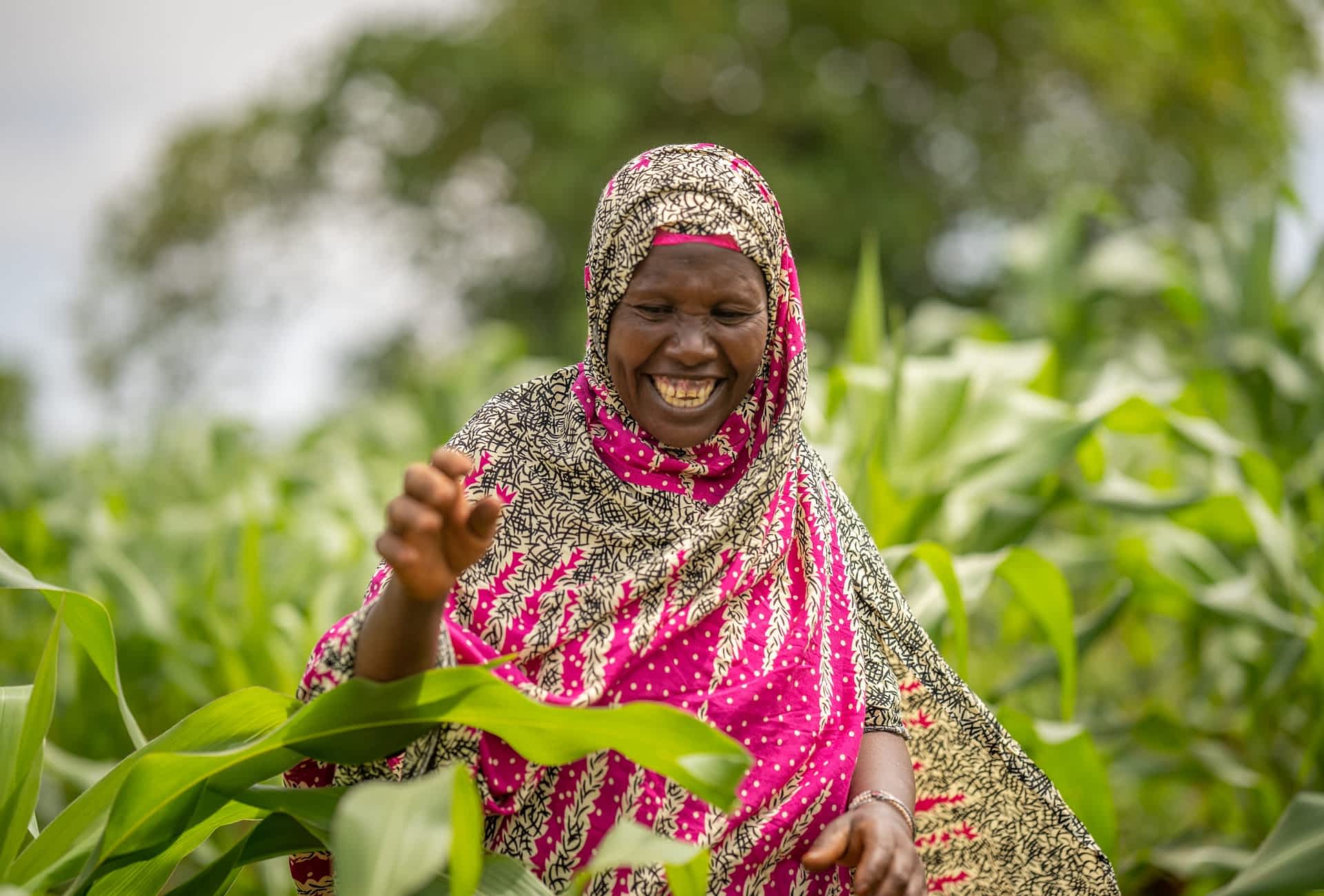Brice – Education For Life
This content was produced with the financial support of the European Union. Its contents are the sole responsibility of Oxfam Denmark and do not necessarily reflect the views of the European Union.
South Sudan is in the midst of a major refugee crisis, with more than one-third of the population currently displaced — over four million people. Since gaining independence in 2011, the country has been plagued by ongoing conflict and civil war for most of its existence.
Refugees and internally displaced people struggle to access basic resources and services such as healthcare and education. Many are traumatised by the violence they have experienced. Access to education is particularly dire: more than 70% of children in South Sudan are not attending school.
Education fuels hope
This presents a serious challenge, both in the short and long term. A functioning education system provides a stabilising force for communities, especially for children and youth. It helps build skills and resilience, increasing the chances of future employment and offering hope for a better tomorrow.
Neighbouring Uganda has shown generosity in hosting refugees from South Sudan as well as the Democratic Republic of the Congo and Burundi. More than one million South Sudanese currently reside in Uganda as refugees. This puts significant pressure on local communities, as both refugees and host populations must share already scarce resources such as land, food, and public services.
This strain creates fertile ground for local tensions and conflict. The Ugandan education system in particular is under severe pressure to accommodate the high number of school-aged children from both the refugee and host communities. As a result, its capacity to provide quality education, especially education tailored to the specific needs of refugee children, remains limited.
Nearly two million children in South Sudan lack access to education. The Education for Life initiative, funded by the EU and DANIDA and led by Oxfam Denmark, aims to change that. In collaboration with local partners, Oxfam Denmark supports the development of inclusive, quality education for both refugees and host communities in South Sudan and Uganda.
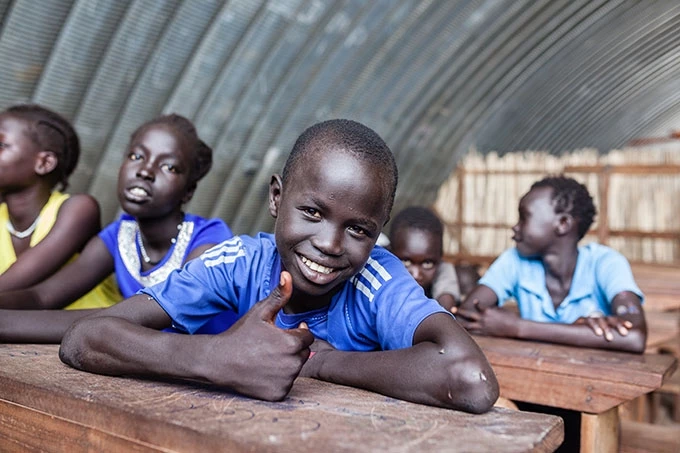
Photo: William Vest Lillesø
Education for Life: Now 35,000 Displaced Children in Uganda and South Sudan Can Go to School
Nearly 600,000 children from South Sudan are living as refugees in Uganda — and only a few have had access to education. More than twice as many are internally displaced in South Sudan, where civil war has stripped them of the opportunity to attend school.
In total, almost two million children have been without access to the education that is essential for their survival — and for their ability to help build a better and more peaceful future.
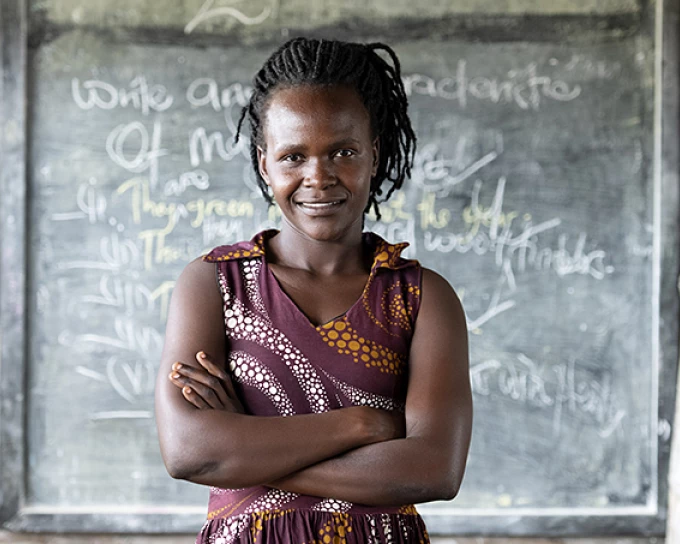
Photo: Emmanuel Museruka
Education for Life
“Education for Life” is the title of a project with a total budget of DKK 41.6 million. The European Union contributes DKK 33 million, while the remaining funds are provided by Danida. Oxfam Denmark is one of 11 implementing partners in the project, which is part of a strategic EU initiative under the joint name BRICE.
BRICE (Building Resilience in Crises through Education) addresses the urgent need for education in situations that are no longer classified as acute emergencies, but not yet stable enough for traditional long-term development efforts — for example, children living in prolonged conflict, displacement, or similar crisis contexts.
10% of the total grant is dedicated to developing, testing and documenting innovative education models.
The knowledge generated is continuously shared with government authorities in South Sudan and Uganda, with project partners and—most importantly—with the global network of organisations working with education in crisis settings.
That Oxfam Denmark was chosen to lead the project is seen as a strong recognition of the organisation’s longstanding commitment to education—most recently by integrating education as a key component of Oxfam’s humanitarian work.
Hope for a Better Future and Active Citizenship
With co-funding from Danida, the EU has allocated 41.6 million DKK to a consortium of partners working to reach 35,000 displaced children with a comprehensive education initiative.
The goal of Education for Life is to equip children not only with academic skills but also to provide daily meals and crucial psychosocial support.
The project also includes targeted activities addressing gender equality, conflict prevention and active citizenship. Special emphasis is placed on ensuring girls have access to education—because girls are particularly vulnerable during conflict and disproportionately excluded from vital learning opportunities.
BRICE – An EU-Funded Initiative
Through the EU-funded project Resilient Learners, Teachers and Education Systems in South Sudan and Uganda, 35,000 children and youth will gain a chance at a better future.
Refugee children will go to school alongside host community children. They will learn to read and write, receive psychosocial support, and be empowered as active citizens with the tools to shape their own lives. Together, they can build peace and rebuild their communities. With education, they can fight poverty and inequality in their countries.
Delivering quality education in conflict-affected regions requires qualified teachers and resilient school systems. This project therefore places teacher training and support at its core, targeting both Ugandan and South Sudanese teachers—in both countries.
Teachers need strong frameworks and professional capacity to support students affected by trauma, help children catch up after interrupted schooling, and provide psychosocial support.
1,000 teachers will be trained through this project, and local communities will be engaged to support schools throughout the crisis.
The project is supported by the European Union with 33,300,000 DKK
Countries: South Sudan and Uganda
Pia Dyrhagen
Interim International Programme Director
International Programme
